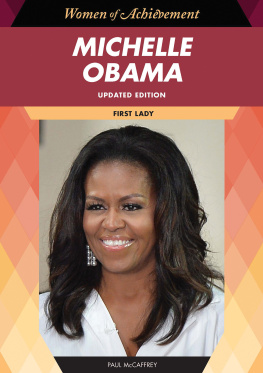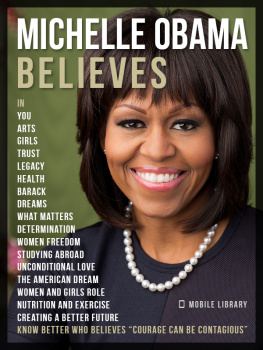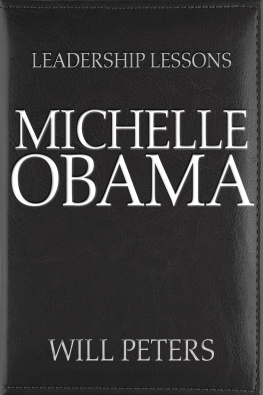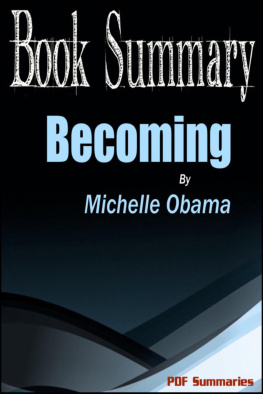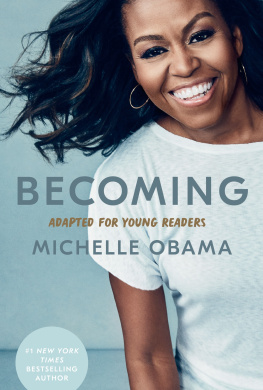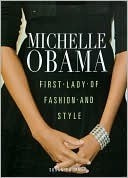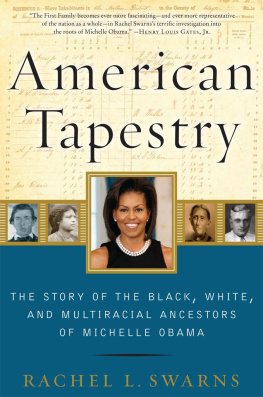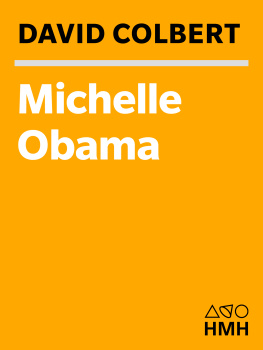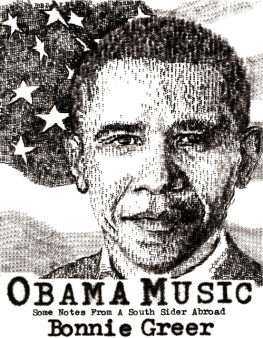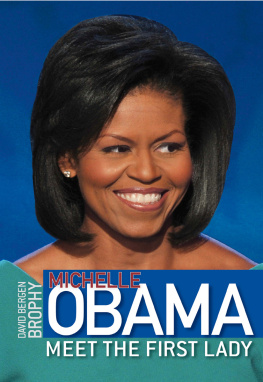All rights reserved. No part of this publication may be reproduced or utilized in any form or by any means, electronic or mechanical, including photocopying, recording, or by any information storage or retrieval systems, without permission in writing from the publisher. For more information, contact:
On November 4, 2008, Michelle and Barack Obama arrived at Beulah Shoesmith Elementary School on the South Side of Chicago, Illinois, at about 7:30 A.M. They had spent the past year and a half crisscrossing the country campaigning for the presidency. What had once seemed like a long shota freshman African-American senator seeking to become president of the United Stateshad culminated in Barack's nomination on the Democratic Party's ticket. Now, on Election Day 2008, they had returned to the Windy City to cast their ballots. It was a fitting location for this moment in their journey together. The school was not far from the tidy brick bungalow where Michelle had grown up, the housing projects where Barack first worked as a community organizer, and the law firm where the aspiring first couple had met. Michelle entered the voting booth. Basking in the moment, she stood there for a time, reflecting on the extraordinary events and the many sacrifices that had brought them to this point. She thought about her father, Fraser Robinson III, who first went to work full time at the age of 11 to support his family and who, though stricken with a debilitating disease, rose early every morning so that his children might have a better life. She thought about her two daughters, Sasha and Malia, and what this day meant for them. And she thought about the nation and the difficult challenges that lay ahead. After casting her vote, she walked out and rejoined her husband.
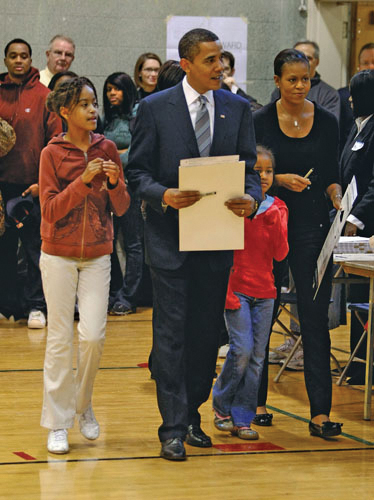
On November 4, 2008, the Democratic presidential nominee, Senator Barack Obama of Illinois, and his wife, Michelle Obama, carry their ballots to the voting booth in their hometown of Chicago, Illinois. Senator Obama would go on to beat the Republican nominee, Senator John McCain of Arizona, later that day.
Source: Joe Raedle/Getty Images.
That night, after a steak dinner, the Obamas headed to a suite at the Chicago Hyatt Regency hotel. Together with family, friends, and campaign staff, they huddled around the television to watch the election returns. When the news networks declared that Barack had won the state of Ohio, the candidate looked to his top adviser, David Axelrod, and asked, "So it looks like we're gonna win this thing, huh?" Axelrod replied, "It looks like it, yeah."
At about 11 P.M., the news became official: Barack Obama would be the next president of the United States. Despite their victory, those gathered in the suite were restrained. Instead of celebrating, they were grave and serious, mindful of the tremendous responsibility that would now be Barack's to shoulder. For her part, Michelle stated, "I was proud as a wife, amazed as a citizen. I felt a sense of relief, a sense of calm that the country I lived in was the country I thought I lived in."
Every four years, Americans head to the polls to elect a president, and although every election is unique, the 2008 contest was truly one for the history books. For the first time in the 200-plus years of the United States, an African American was on the ballot representing one of the two major American political parties. And he had won. Setting aside the politics and the issues of the 2008 election, for a nation that had endured slavery, the Civil War, Reconstruction, and Jim Crow, that Barack and Michelle Obama would now hold the keys to the White House stood as a powerful testament to American progress and the ability of a nation and a people to overcome.
Grant Park
Later that night, the Obamas headed to Chicago's Grant Park where more than 200,000 supporters were waiting. In the crowd, many were weeping with joy. A cheer went up as Barack, Michelle, Sasha, and Malia Obama walked onstage. Addressing the nation and those watching around the world, the president-elect began, "If there is anyone out there who still doubts that America is a place where all things are possible; who still wonders if the dream of our founders is alive in our time; who still questions the power of our democracy, tonight is your answer."
Already recognized for his skill as a speaker, Barack exceeded his own high standards in his victory address. He saved some of his most eloquent words for his wife. "I would not be standing here tonight," he intoned, "without the unyielding support of my best friend for the last sixteen yearsthe rock of our family and the love of my life, our nation's next first lady, Michelle Obama."
Dressed in a black-and-red silk and satin dress, Michelle stood with her daughters and waved to the adoring crowd. Michelle had proven herself on the campaign trail. She had endured the criticism and the personal attacks, the rumor and innuendo. She had made mistakes, but she had learned from them. With her wit and down-to-earth charm, she had served as one of her husband's most effective boosters. Not only did she win over voters, helping convince them to cast their ballots for Barack, she emerged during the campaign as one of the nation's most accomplished and fascinating people.
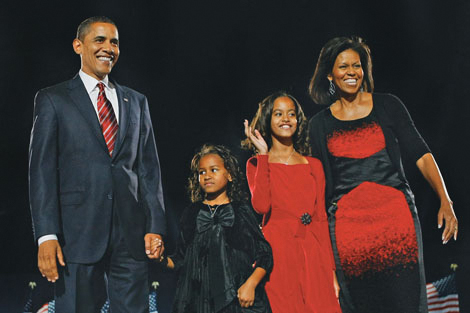
President-elect Barack Obama acknowledges his supporters along with his wife, Michelle, and daughters, Malia (second from right) and Sasha, during an election night gathering in Grant Park in Chicago, on November 4, 2008.
Source: Joe Raedle/Getty Images.
Her path to Grant Park that November night had been long and difficult. Unlike many first ladies, Michelle did not enjoy a wealthy or privileged upbringing. Her origins were humble. Her ancestors had not arrived in the United States seeking a better life or fleeing religious persecution. They had been brought to America to work the fields as slaves. Over the generations they persevered, from the plantations of the South, eventually making their way to the gritty streets of Chicago's South Side.
From these modest beginnings, like her forebears before her, Michelle made the most of the opportunities available to her. She sought out the most challenging schools, intent on realizing her full potential. Spurred on by the inspiring example set by her parents, she tackled her studies with single-minded intensity.
Her efforts paid off. From Whitney Young High School in Chicago, Michelle followed her brother, Craig, into the Ivy League when she was accepted at Princeton University. From Princeton she went on to Harvard Law School and then began a career as a corporate attorney at the Chicago firm of Sidley & Austin, where she met her future husband. Unsatisfied with corporate law, Michelle left her high-paying position to serve the public, first working in economic development for the city of Chicago and then for the nonprofit organization (NPO) Public Allies, where she prepared students for careers in public service. After building the Chicago branch of Public Allies, Michelle worked in community relations for the University of Chicago and later for the University of Chicago Hospitals, helping to break down long-standing divisions between these organizations and the surrounding community.

